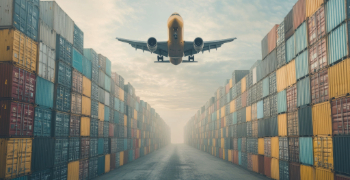Is a Lack of Proper Fuel Licenses Putting Your Company at Risk?
Have you ever been unexpectedly attacked by a brown bear before you had a chance to become familiar with the right survival skills? If so, you know what it feels like to be the fuel tax analyst who suddenly finds his company in a new state without the proper fuel licenses.
Nah, just kidding. It's not quite that bad.
But now that we have your attention, here’s why your company needs to be concerned with fuel licensing:
A lack of proper licensing can add extra tax liabilities, put your company at high risk for a painful audit and, believe it or not, may even make you guilty of a first-degree misdemeanor if you are a fuel transporter based in Florida.
Yikes. Let’s take a deeper look at the issue.
Why you must pay attention to fuel licensing...
A large multi-national biofuel producer and marketer recently shared the following story, which illustrates what a lack of proper licensing could cost your company:
A counterparty was paying company for biodiesel from its plant in Iowa City. The trader planned to transport it to another jurisdiction and presented title transfer for out-of-state delivery.
What the buyer didn’t show was an Iowa export license. As a result, the company had to charge state motor fuel tax on a load that would’ve been exempt had the company held an exporter license or structured the deal to sell the fuel on a delivery basis. (No licenses or taxes were required in the destination state.)
This is just one example of why it's so critical for everyone—not just your tax department, but everyone—to understand the complexities of licensing and registration requirements.
Unfortunately, these kinds of misunderstandings happen all the time. Businesses end up paying state and local taxes from which they would otherwise be exempt—if only the parties involved knew ahead of time which licenses to register for.
Managing licensing requirements at a small company that does business in one, two or three states may not be a big deal. But as soon as you begin to expand beyond that, the intricacies of fuel licensing become incredibly complex.
This is why it’s so important to immerse your company in the complex world of excise fuel licensing...
…even when it still feels like a guessing game.
Licensing is just one of many factors that impact how you pay fuel excise tax, but it’s one of the most important. Most states require licenses to buy and sell fuel, and each one has its own set of requirements. Without the proper licenses in each state, your company could become liable for taxes unnecessarily.
With fuel taxes charged by the gallon, improper licensing has the potential to not only put your company at high risk for a painful audit, but expose you to increased tax costs as well.
Take, for example, the common “rack lifting” interstate purchase by a company that intends to move fuel from one state to another. Let’s say the buyer is licensed in the origin state. This usually means the company won’t pay taxes until the fuel has been successfully transported across state lines.
But what happens when the buyer is unlicensed in the origin state? The company becomes liable for taxes twice: once in the origin state, and again in the destination state where the fuel is going to be used.
Licensing protects you.
This much we know to be true:
As soon as fuel is bought in bulk at the rack, a return filing liability is created.
What, when and who you pay is where things get complicated. Those change each time you cross state lines or buy a different type of fuel.
At the federal level, licenses aren’t too terribly complex. Most excise taxes are collected by the Internal Revenue Service when fuel is removed from storage terminal racks—the mechanisms used to deliver fuel for transportation by methods other than pipelines and vessels.
Yet even at this stage it’s possible to become liable for millions of dollars in fuel taxes by simply failing to have the proper 637 license. (Seriously. This has happened even to the nation’s biggest fuel companies.)
Things get really tricky at the state and local levels.
Some states charge taxes at the rack, others impose them at the distributor level and most regularly change their requirements from year to year (or even month to month).
Additionally, states like Illinois, Oregon and Alabama have license requirements at the county level as well. (PSA: Navigating state government websites in an attempt to understand requirements is often like trying to find a needle in a haystack.)
In conclusion:
If you want to avoid brutal audits and tax liabilities, you must understand what your licensing requirements will be before you start doing business in another state. And don’t forget to stay updated on requirements as they evolve—either by consulting with a free resource like the Federation of Tax Administrators or relying on an automated solution that tracks it all for you.
Unless, of course, you like getting mauled by brown bears.

Your competitors live by this annual report
Trusted by professionals, this valuable resource simplifies complex topics with clarity and insight.
Stay up to date
Sign up for our free newsletter and stay up to date with the latest tax news.












